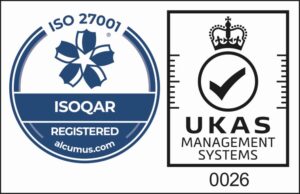The Importance of Cybersecurity for Small Businesses
Cybersecurity is important for all businesses, regardless of size. However, small businesses are often seen as more vulnerable targets for cyberattacks because they may have fewer resources to dedicate to cybersecurity. Here are some reasons why cybersecurity is crucial for small businesses:
Protecting Sensitive Data
Small businesses often have valuable data, such as customer information, financial data, and proprietary information. A cybersecurity breach could result in the loss or theft of this data, which can have serious consequences for the business and its customers.
Maintaining Business Operations
A cyberattack can disrupt business operations, causing downtime, loss of productivity, and revenue loss. Small businesses may have a harder time recovering from these losses compared to larger businesses.
Building Customer Trust
Customers expect businesses to keep their personal information safe. A data breach can damage customer trust, resulting in a loss of customers and a damaged reputation.
Compliance Requirements
Depending on the industry, small businesses may be subject to compliance requirements that mandate specific cybersecurity measures, such as the Health Insurance Portability and Accountability Act (HIPAA) or the Payment Card Industry Data Security Standard (PCI DSS).
Legal Liability
Small businesses can be held legally liable for data breaches and other cybersecurity incidents. This can result in lawsuits, fines, and other legal consequences.
Increasing Cybersecurity Threats
Cybersecurity threats are constantly evolving and becoming more sophisticated. Small businesses may not have the resources or expertise to keep up with these threats, making them more vulnerable to attacks.
In summary, cybersecurity is critical for small businesses to protect sensitive data, maintain business operations, build customer trust, comply with regulations, avoid legal liability, and mitigate cybersecurity threats. Small businesses should prioritize cybersecurity by implementing best practices, investing in security tools, and staying up-to-date on the latest threats and security measures.













